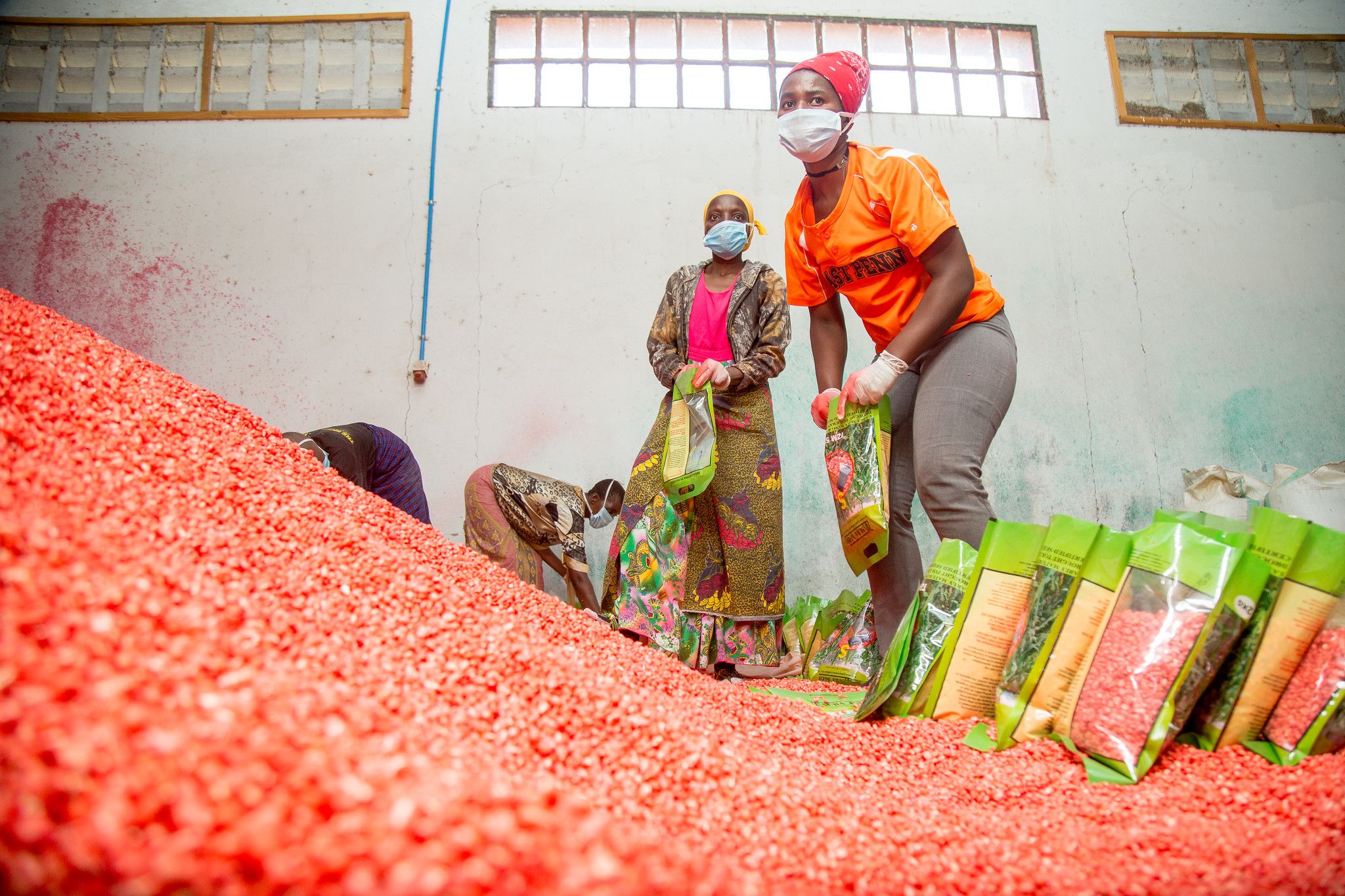Accelerated Varietal Improvement and Seed Delivery of Legumes and Dryland Cereals in Africa (AVISA)
The Accelerated Varietal Improvement and Seed Delivery of Legumes and Dryland Cereals in Africa (AVISA) project increased demand-driven, gender equitable and timely access to quality seeds and inputs for small-scale producers by strengthening links between seed producers, farmers and grain aggregators, particularly women and young farmers. Partners included national agricultural research and extension systems (NARES), the Syngenta Foundation for Sustainable Agriculture (SFSA), the Center for Behavior Change Communication (CBCC) and the Tanzania Seed Traders Association (TASTA).
The project, which involved 188 NARES scientists from nine countries in East and Southern Africa (ESA) and West and Central Africa (WCA), tested different impact pathways to improve the scalability of dryland crop innovations. They identified 58 regional market segments for crops such as sorghum, pearl millet, finger millet, groundnut, chickpea and pigeonpea, of which 28 were prioritized for breeding pipelines. Target product profiles were consolidated and priority traits were addressed through a crop health/pathology network. Breeding programs were implemented through shared pipelines, regional trials were conducted and 2,461 farmers participated in tricots.
Efforts included the formation of a cowpea WCA working group, the identification of 26 common bean market segments in East Africa, and the implementation of awareness and demand generation activities using a variety of promotional methods. Data-driven decisions were prioritized, resulting in the creation of breeding informatics teams, quality assurance/control pipelines, and digitization templates.
The project also established governance structures and steering committees for the two target regions in sub-Saharan Africa, as well as operational committees and elected representatives to ensure the functioning and sustainability of the CGIAR-NARES dryland crops network.
In addition, the project targets the Sustainable Development Goals: SDG 2 – Zero Hunger; SDG 13 – Climate Action; SGD 17 – Partnerships for the Goals.
Reports

